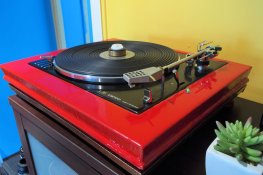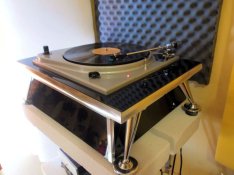JWMster
Member
It's another absurdity. Where do you think the word "splice" came from? Ever see a splicing block? A device that, in combination with a single-edge razor blade, is used to put together different sections of tape? From different takes?"
Sal: Matter of fact I've worked splicing blocks. Made things called "movies". All the way back to high school. Please note that I am telling you what is said... not what I agree with or what I do... simply what the explanation is. And an explanation doesn't mean I swing there. I upgraded to CD's a hundred years ago. Now most of my music's on a drive somewhere on a disc or through my phone.
There's nothing more "authentic" about the talent of an "artist" whose performance was recorded via an analog medium than one captured using digitizing equipment. One can debate the adequacy of digital standards -- I personally discussed optimal audio sampling rate with Bob Fine, who'd concluded that at least 100k per second was necessary, at an Audio Engineering Society meeting many decades ago -- but claims about vinyl's inherent "superiority" are nonsense on their face.
Not a case I've ever made or am making here. Preaching to the choir on this. You're responding to an argument i'm not making. Sound quality has nothing to do with it. My point is that I hear from some as a one time classical guitarist that there are folks who doubt the performance-ability of some. Yes, they claim to hear the splices. They claim to hear all that. And what they claim to want to hear are the mistakes in the player's piece that "guarantee" an authentic recording. I get it. I'm not suggesting it is a recording technology issue so much as a recording aesthetic. But do I want to hear Glen Gould screw up? No, and neither do 99% of the folks out there.
But I have never missed the "pop", the "crack crack" etc. of a track.








 .
. .
.
 .
.